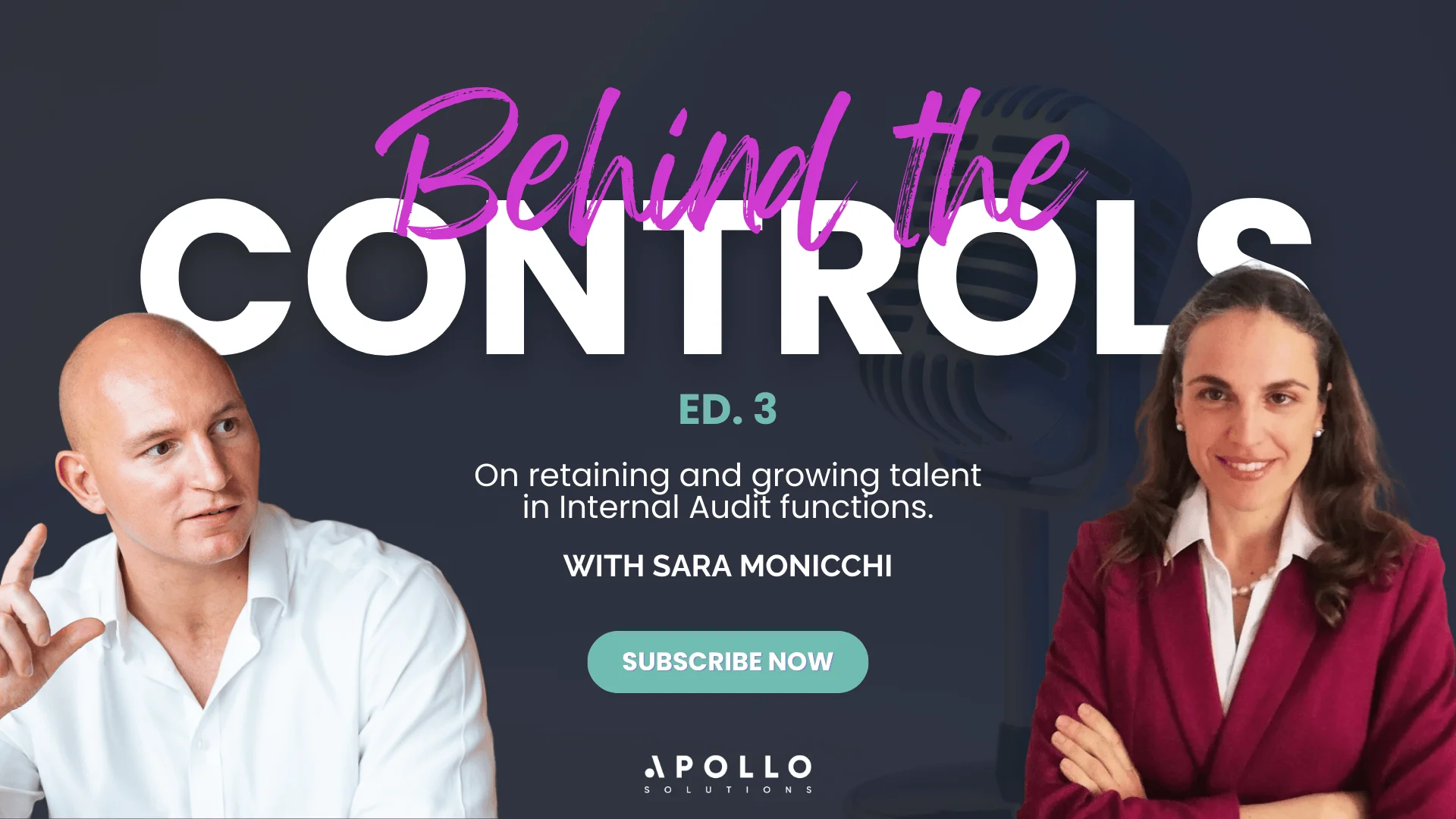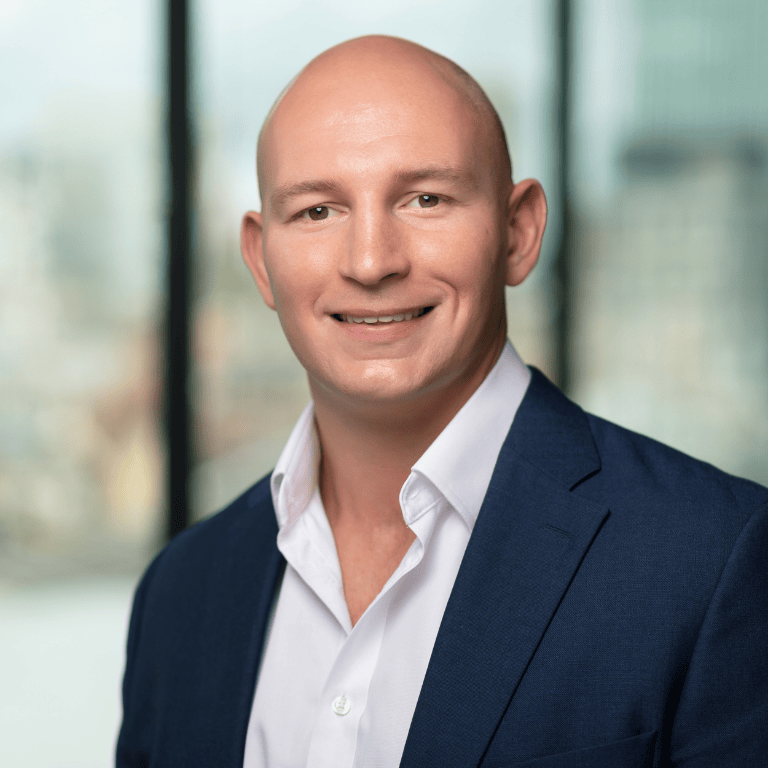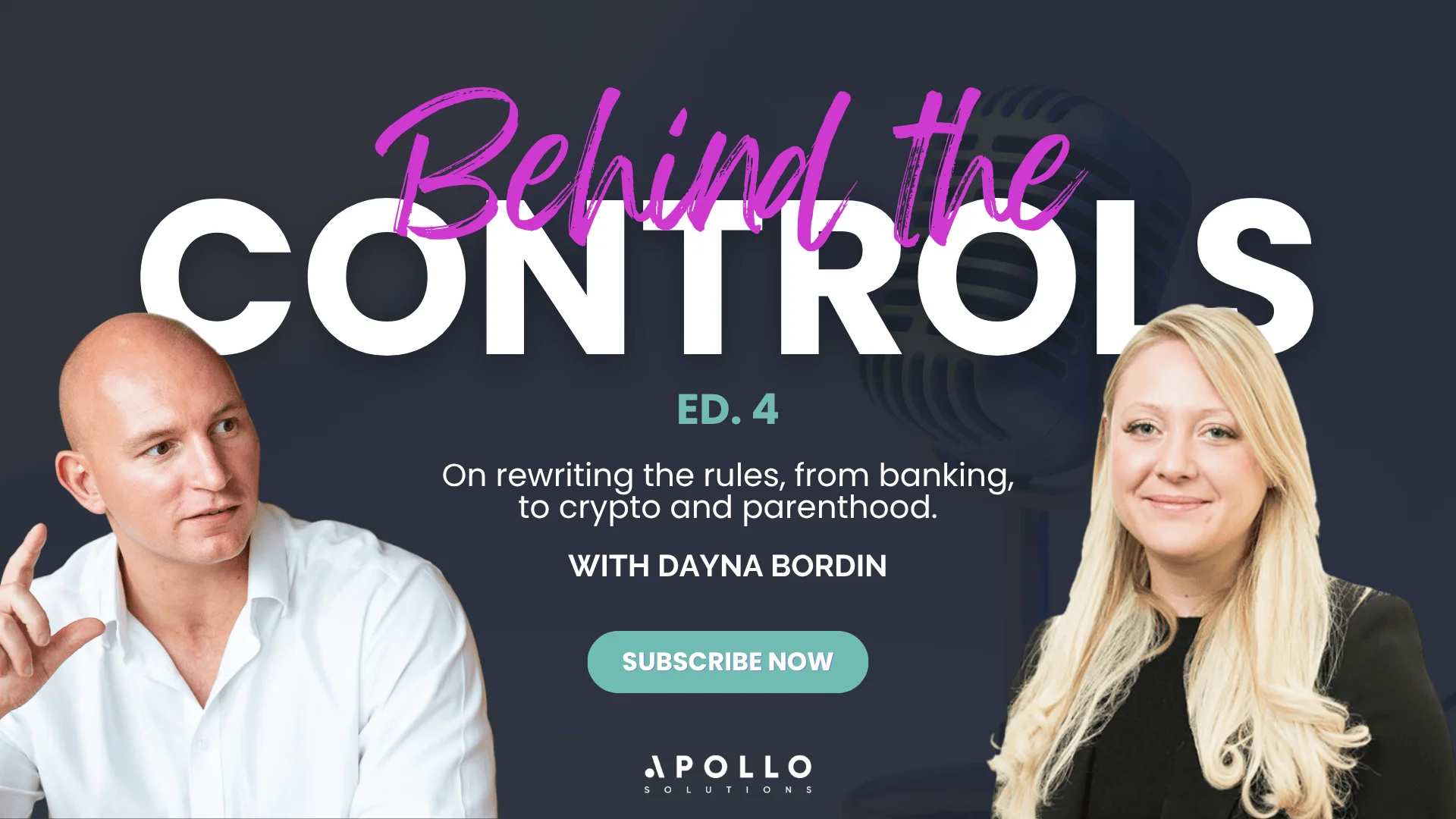Retaining and growing talent in Internal Audit functions w/ Tom Edwards & Sara Monicchi
11 Sept, 20259 minsInternal Audit has always been a proving ground for talent. But with competition for skilled...

Internal Audit has always been a proving ground for talent. But with competition for skilled professionals higher than ever, retention is becoming just as important as recruitment.
For the third edition of Behind the Controls, I sat down with Sara Monicchi. She’s a Senior Manager at ICBC Standard Bank, and manages the Global Markets audit portfolio. We talked about how leaders can spot, grow and keep the very best talent in audit.
Sara has spent nearly two decades in Internal Audit, working for the likes of RBS, MUFG, Deutsche Bank and ICBC Standard Bank. She’s seen first-hand what makes people thrive in the function. And what drives them away.
Spotting talent: look beyond the obvious
Too often, “talent” is defined by a technically competent employee’s degree of visibility. Sara believes the definition needs to broaden.
“It’s relatively easy to spot if someone is technically strong. What’s harder to recognise is resilience, empathy, adaptability and the ability to build trust. Those people are often not the most visible to management, but they are the ones who focus on achieving the team’s or firm’s objectives as well as working on their own development. They’re happy to support management, but also their peers and more junior colleagues. Working collaboratively and recognising the contribution of others.”
Traditional indicators like the ability to influence and strategic thinking still matter, according to Sara, but other soft skills have become just as critical. Identifying and rewarding those traits sends a powerful message about what leadership truly values and helps retain those people.
Retention starts with showing you care
Sara is clear: retention isn’t about gimmicks. It’s about showing people that you value them:
- Have a plan – although everyone is responsible for their own development, management is a key contributor to any development plan. You have to understand who’s ambitious and who prefers stability, and provide opportunities aligned to the individual’s goals.
- Give access – let people see and experience what lies ahead in their career: encourage them to try new things and operate in their “stretch zone”. As an example, leaders need to give juniors opportunities to stretch beyond testing. Invite them to stakeholder meetings. Let them observe decision-making.
- Be present – even a 30-minute roundtable with a senior leader can inspire loyalty and strengthen motivation.
- Acknowledge talent – don’t wait until someone resigns to tell them they’re valued.
- Ensure fair workloads – misaligned responsibilities or tasks beneath a person’s title, or compared to others in the team/function, are some of the quickest ways to lose people.
- Match strengths to opportunities – not every development task should be about “fixing weaknesses”. Focus on your team members’ strengths to grow and develop their confidence and boost morale and motivation.
Sara shared her own journey of learning to embrace her strengths:
“I’ve always been energetic and very people-focused. I adapt quickly to different styles, which helps me build strong relationships within and outside my department. At times my energy and enthusiasm have been perceived as impacting my ability to be seen as grounded, something the industry often prizes in leaders. But when I tried to tone myself down, I lost what made me effective and successful. It was only when I recognised that my energy, passion and drive were actually my strengths, and I re-aligned myself to those, that I grew in confidence and in my career. The key is having leaders who recognise and value those traits.”
When to specialise, and when not to
Speaking of growth and development, many young auditors feel pressured to specialise early. Sara’s advice: don’t rush.
- Use the early years to explore different areas of the business.
- Specialise when you’ve seen enough to know what genuinely excites you.
- Smaller firms can give you a holistic view of how everything connects while bigger firms teach you how to navigate more complex environments.
“There’s no right or wrong time. Don’t panic about being a generalist early on. Once you know what you love, you can build your story around it one step at the time.”
Leaders, too, play a role here. Rotation programmes and secondments not only help retention, but they also develop more rounded professionals who bring fresh perspectives back into the audit team.
Sara reflected on how her career expectations shifted over time:
“When I started out, the focus was all on having big names on your CV. That’s what people thought would define your career. But for me, the real value came from exploring different areas within audit: market risk, credit risk, compliance, capital risk. Later, when I moved to a smaller firm, I had the chance to focus on investment banking audit and decided this was the area I wanted to specialise in. That experience taught me it’s fine to be a generalist at first. What matters is building your story until you find your area of specialisation.”
When people feel stuck
Every career has moments of stagnation. Sara shared practical advice for individuals and leaders alike.
For individuals:
- See the feeling as temporary.
- Focus on what you’re still learning or seek out new skills.
- Access your support network in and outside of work. Talk to trusted (ex) colleagues to gain fresh perspectives. You might also consider retaining a career coach, or follow motivational speakers to get into a more positive mindset.
- Be proactive: ask for projects, stretch work or secondments.
For leaders:
- Spot when someone feels stuck and create opportunities before they walk away.
- Deliver consistent and honest messaging: people remember what you say, even if you don’t.
- Encourage confidence by focusing on strengths as well as development points.
“Sometimes people don’t need a whole new job. They just need something a little different to re-energise them.”
Knowing when it’s time to go
Finally, what if despite all efforts, someone still wants change?
“If you’re still asking yourself ‘is it the right time (to go)?’, then it isn’t. When it is, you’ll know. Even then, continue to do your best where you are, as an opportunity might open up unexpectedly, and keep learning, building resilience and preparing yourself for the next step.”
Sara knows what it’s like to face setbacks. After completing her post-graduate degree in 2008 at the height of the financial crisis, just as banks were collapsing, she sent out over 200 CVs before finally landing her first audit role. That difficult start shaped her professionally ever since.
Her message to today’s graduates and early-career auditors?
“It’s OK if it takes time. Don’t give up. Every struggle adds to your resilience and adaptability. Even though you don't have a job right now, as you are searching for one, you have already started building the story that will accompany you throughout your career.”
Final thoughts
As Sara said, retaining and developing talent isn’t about complicated frameworks. It’s about recognition, access, honesty and care. The best audit teams are built on trust, consistency and opportunity.
Want more insights like this?
Subscribe to Behind the Controls to stay ahead of what’s shaping Audit, Risk and Compliance leadership, and how top professionals are navigating it.



